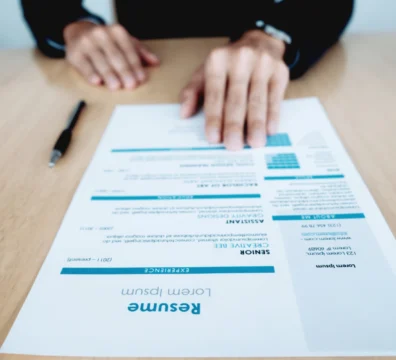The first thing that you look for when hiring a new employee is their skill. Skill loosely translates into the ability to work well. But the ability to quickly identify that skill makes recruiters and HRs skilful and adept.
Every company needs to hire skilled employees for better business performance. However, according to research, 76% of recruiters find attracting quality candidates their biggest hurdle today. In a high-performance and candidate-centric market, only a few candidates have the quality that a business needs and these people already have multiple job opportunities.
If your recruitment team has the right skills required for talent acquisition, then they can easily hire the right candidate. We’ll share some talent acquisition skills that can make you a pro in the market today!
What is Talent Acquisition?
When hiring talent, you go through multiple steps, from identifying the right people to convincing, attracting, selecting, and retaining them. Talent acquisition is known as developing a strong candidate pipeline, improving employer branding, identifying and hiring candidates, and future resource planning.
Talent acquisition is a little different from recruitment. While recruitment only focuses on hiring people for immediate vacancies, talent acquisition helps you build a talent pipeline. They get high-quality candidates for your hard-to-fill vacancies and forecast your future staffing requirements.
Top Skills Required for Talent Acquisition
According to research, the need for talent acquisition specialists will keep increasing for the next few years. These professionals ensure your company makes the right hiring decisions, leading to business development and growth.
Are you deciding to enter into this profession? We have listed the top talent acquisition specialists’ soft and hard skills for recruiters to make a better choice.
Professional Hard Skills for Recruiters
Are you wondering what skills recruiters need to secure a job? You must have proper qualifications in human resources, business administration or a related field and industry experience.
Some important recruitment skills include
- Having in-depth knowledge of candidate sourcing techniques
- A strategic understanding of staffing tools
- Social media-based recruitment skills
- Technical knowledge
Communication Skills
One of the important skills needed to be a recruiter is good communication. This is because they often need to communicate with potential hires, HRs, company executives and other personnel. You must be an expert in expressing your thoughts both verbally and in writing to fulfil your responsibilities efficiently.
For example, you need communication skills to draft compelling job posts that engage your target talent pool. Otherwise, candidates won’t understand your requirements clearly, leading to wasting time and money on bad hires.
Negotiation
As the job market becomes candidate-centric, staffing has become the toughest sales job for business. It is because you have to determine that both parties, the candidates and your company, are making the right choice. Therefore, negotiation is one of the top skills required for talent acquisition.
Both HR and the candidates can devise a long wish list where some options may be unrealistic. As a talent acquisition specialist, you need to speak efficiently with the candidates and convince them to work with your company for the betterment of both.
Relationship Building
Recruiters need to nurture relationships with top talents. This helps you hire them immediately during a vacancy and use their network to meet new talents.
Moreover, this can help identify the best fit for the role and the company out of multiple options. Networking and relationship management skills for talent acquisition will be primely important in the next few years.
Planning
The responsibility of a talent acquisition specialist is to forecast future staffing needs and create strategies to meet them. It means you must learn effective human resource planning skills to determine future labour needs, current supply, and the balance between the two. This helps draft hiring strategies aligning with organisational goals and meeting success.
Analytical Skills
Analytical skills are among the top skills required for talent acquisition to process and analyse employee data from different angles. They can convert the raw data into useful information, analyse them and take necessary actions.
This helps them determine different employee data, like their behaviours and performance, that can directly impact your business.
Observation
If you aren’t a good observant, you might miss a good opportunity to hire top talent. Businesses require the best people on board to improve their productivity. In that process, you can play a vital role by keeping a keen attention while hiring talents.
It is because you can now observe a person from different angles other than their resumes. Perception can sometimes mislead you, but having a good observation can prepare you for the worst.
How do You Improve Your Recruiting Skills?
As a talent acquisition specialist, you need to improve your recruiting skills from time to time. We have listed a few steps to help you in the process.
Practice Soft Skills
You must look for opportunities to exercise your soft skills, like patience, observation, empathy, negotiation, etc., in your professional and personal life. This will improve your performance at work and help you build better relationships with people in your company and with talents.
Have Measurable and Practical Goals
You must establish clear objectives and strategies to acquire the top skills required for talent acquisition. For example, if your goal is to learn to use multiple HR tools, you can establish a habit of learning about one tool daily and go through self-help books.
This will help you grow continuously and positively impact your job. Moreover, when you divide your targets into reasonable activities, you can easily measure them and track your progress.
Use Different Trustworthy Resources
To become a talent acquisition specialist, acquiring soft skills is not sufficient. You must strengthen your hard skills, like getting a new certificate, advancing your degree, etc. In that case, you can learn from subject matter experts, attend workshops and conferences, or join a professional association.
Conclusion
Whether you are a new or an experienced recruiter, you must invest in improving the skills required for talent acquisition. This increases your chance of getting opportunities in top companies and boosts performance levels.
Are you looking for a job as a talent acquisition specialist? Visit the career page at 6 Pence, or follow us on social media to learn about the latest job openings in Dubai, Iraq, Oman, and Bahrain.
Frequently Asked Questions
What talent acquisition needs?
Talent acquisition needs your efficiency in identifying, acquiring, assessing and hiring candidates for open positions, building talent pipelines, future resource planning, diversifying companies’ labour force, and employer branding.
What skills do you need to be in talent acquisition?
To become a talent acquisition specialist, you need to have tech skills, good communication, observation, analytical skills, patience, empathy, industrial knowledge, and an understanding of HR tools.
Is talent acquisition part of HR?
While HR manages the existing workforce and employee-related matters, talent acquisition focuses on finding and hiring the best talent for the company’s needs.
Related Blog: 7 Step Guide To Building a Talent Acquisition Team




































































































